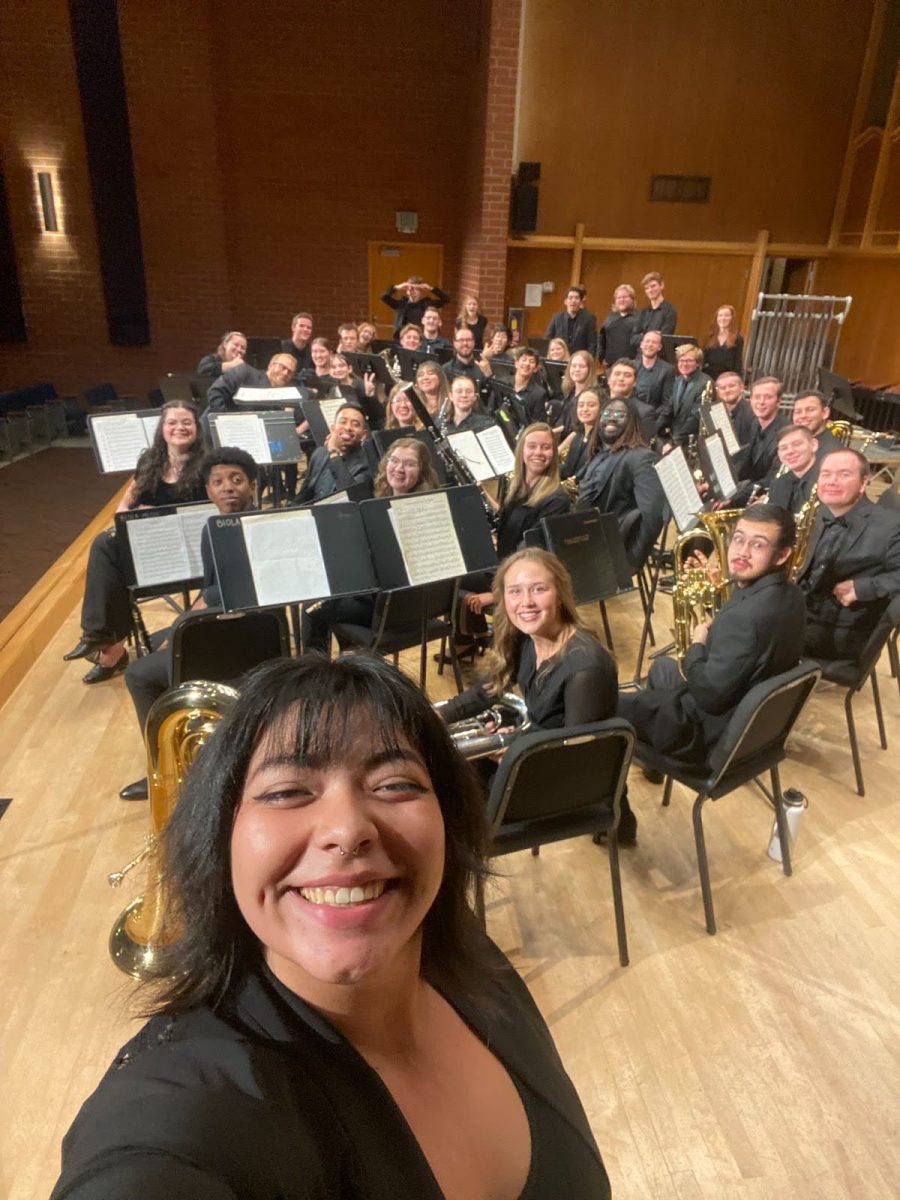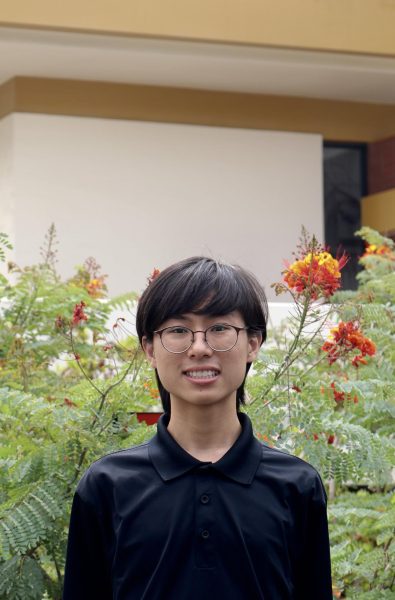On Oct. 18, the Biola Symphonic Winds, directed by Dr. Karl Meyers, performed their fall concert in Lansing Recital Hall at 7:30 p.m. After an introduction and prayer by Todd Guy, the dean of School of Fine Arts and Communication, Meyers took the stage and began the concert.
THE PROGRAM
The night started off with “American Overture,” a pompous and joyful march by Joseph Wilcox Jenkins.
Next was “Serenade” by Derek Bourgeois. Meyers explained that unlike most songs, which are written on a consistent measure of beats, “Serenade” was written so that the time signature of the song would change every couple measures, leading to a very chaotic yet fun tune. According to Meyers, Bourgeois had written the song for his own wedding in order to mess with the guests.
The next song took a more somber turn with “Where Jesus Wept,” a symphonic piece by William Schuman. The composition’s melody was influenced by a hymn of the same name that was originally written and published by William Billings in 1770.
After that was “Courtly Airs and Dances,” a six-part composition by Ron Nelson. The first part began the song with a bold, majestic fanfare and was followed by five parts named “France,” “England,” “Italy,” “Spain” and “Germany.” Each song had a varied tune, from flowing and relaxed in “France” to more fast-paced and festive in “Italy.”
At this point in the concert, Meyers paused to introduce Ilan De La Cruz, a student percussionist within the band. With Cruz’s upcoming graduation, he was given the opportunity to conduct the next song, a three-part composition titled “Three Ayres from Gloucester” by Hugh M. Stuart.
Afterward, Meyers returned to the conductor’s podium to lead the band in the next piece called “Mock Morris” by Percy Grainger. The song was light and sharp, with a lot of staccato notes. Meyers stated that the lighthearted song mirrored the concert, in that there were no overarching themes.
The band’s penultimate song was “Blessed are They,” a composition arranged by Barbara Buehlman. The composition is based on an orchestral piece of the same name by Johannes Brahms, who originally wrote it for a choir and orchestra combination. The tune goes through many moods, from soft and tender to grand and colorful chords.
The concert ended with “Mother Earth” by David Maslanka. With its epic atmosphere and room-filling blasts, it was a strong conclusion to the concert.






